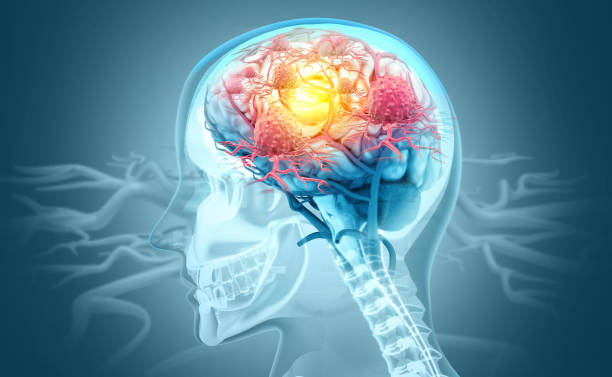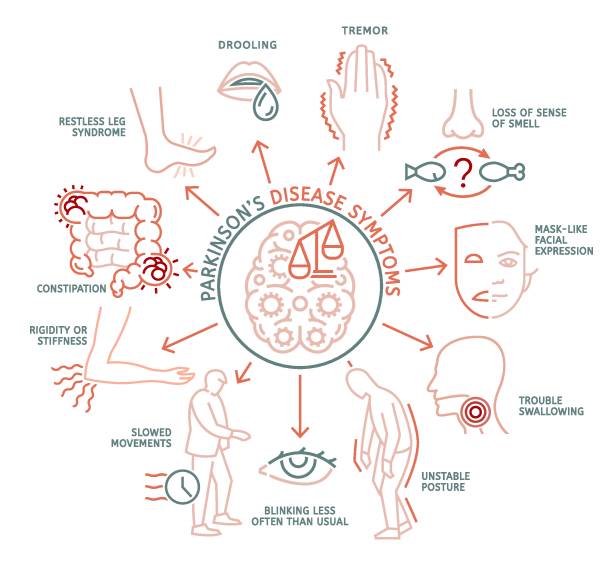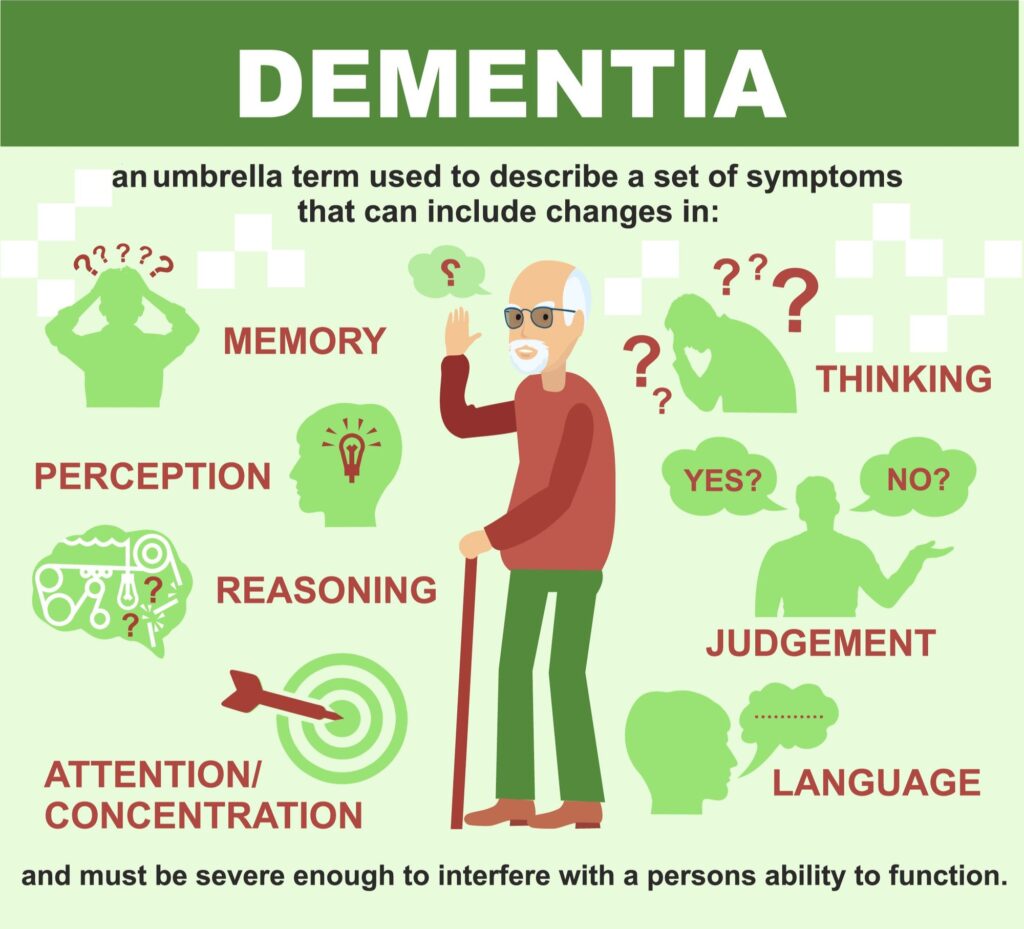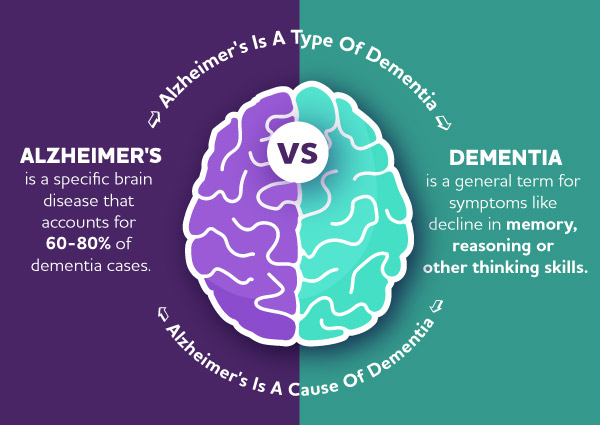Neurodegenerative diseases are chronic conditions that damage and destroy parts of the nervous system, especially the brain. Here are some of the most important types:
1. Alzheimer’s

- Causes: Alzheimer’s is caused by neuro-degeneration, leading to gradual brain cell damage. It’s associated with the build up of proteins like beta-amyloid plaques and tau tangles in the brain.
- Symptoms:
- Memory loss
- Confusion
- Difficulty with language
- Impaired judgment
- Personality changes
- Wandering behavior
- Eventually, dementia
- Prevention: While there’s no guaranteed prevention, adopting a healthy lifestyle – such as regular exercise, a balanced diet, and mental stimulation—may help reduce the risk.
2. Parkinson’s

- Causes: Parkinson’s results from damage to dopamine-producing cells in the substantia nigra (a brain region). The exact cause isn’t fully understood, but genetic and environmental factors play a role.
- Symptoms:
- Resting tremors
- Slowness of movement
- Balance issues
- Stiffness
- Expressionless face
- Cognitive impairment (in later stages)
- Hallucinations (due to medications)
- Prevention: While not guaranteed, maintaining a healthy lifestyle, including exercise and a balanced diet, may help lower the risk. Also, some studies suggest that coffee consumption might have a protective effect. Remember, early detection and medical guidance are crucial for managing these conditions effectively.
3. Dementia

Dementia refers to a group of symptoms that affect memory, thinking, and daily functioning. It isn’t a single disease but rather a collection of conditions. It is an umbrella term and not a specific disease, but several different diseases may cause Dementia.
Alzheimer’s disease is the most common cause of a progressive Dementia in older adults.
Let’s explore it further:

- Causes:
- Damage to Brain Cells: The primary cause of dementia is damage to nerve cells and their connections in the brain. Various factors contribute to this damage:
- Age: Advanced age increases the risk, especially in Alzheimer’s disease.
- Family History: Genetic factors play a role.
- Vascular Issues: Damage to blood vessels in the brain.
- Protein Accumulation: Clumps of proteins (like beta-amyloid) in the brain.
- Other Disorders: Conditions like Huntington’s disease, Parkinson’s disease, and depression.
- Infections, Metabolic Disorders, Medications and Toxic Exposure.
- Complications: Prolonged dementia can lead to malnutrition, weight loss, pneumonia and dependency on others for daily tasks.
Symptoms:
- Cognitive Changes:
- Memory loss (often noticed by others).
- Communication difficulties and word-finding issues.
- Trouble with reasoning, problem-solving, and complex tasks.
- Confusion, disorientation, and impaired coordination.
- Psychological Changes:
- Personality shifts, depression, anxiety.
- Hallucinations, mood swings, agitation.
- Apathy (lack of interest or emotions).
Prevention and Treatment:
- Lifestyle Changes: Stay physically active, eat a brain healthy diet, challenge yourself, get quality sleep, manage stress and stay socially connected.
- Vascular Health: Improve blood vessel health to prevent vascular dementia. Manage blood pressure, exercise, and maintain a healthy weight.
- Avoid Risk Factors: Quit smoking, control diabetes, and manage high blood pressure.
- Medication:
- Cholinesterase Inhibitors(e.g., Donepezil, Galantamine) improve memory and cognition.
- Memantine(NMDA receptor antagonist) aids learning and memory.
- Antipsychotics(e.g., Risperidone) treat anxiety, depression, and agitation.
- Therapy:
- Occupational Therapy: Helps adapt to daily life and create a safe home environment.
- Nutrition:
- Include fresh fruits, vegetables, whole grains, and omega-3-rich food.
- Use salt and sodium moderately.
- Self-Care:
- Modify tasks to retain focus.
- Stay socially engaged and mentally active.
Remember, early detection and intervention are crucial. If you or a loved one experience memory problems or other dementia symptoms, seek medical advice promptly.
Reasons for Dementia
Here are 20 main factors that can increase the risk of developing dementia:
- Age: The risk increases significantly as you get older.
- Family History: Genetics can play a role, especially if a close relative has had dementia.
- Alzheimer’s Disease: The most common cause of dementia.
- Vascular Issues: Conditions like high blood pressure, high cholesterol, and strokes.
- Diabetes: Poorly managed diabetes can increase the risk.
- Smoking: Increases the risk of vascular problems, which can lead to dementia.
- Alcohol Consumption: Excessive drinking can lead to brain damage and dementia.
- Depression: Untreated depression can be a risk factor.
- Head Injuries: Traumatic brain injuries can increase the risk.
- Sleep Apnea: Poor sleep quality and sleep disorders can contribute.
- Obesity: Being overweight can increase the risk of vascular diseases.
- Lack of Physical Activity: Regular exercise is important for brain health.
- Poor Diet: Diets high in saturated fats and sugars can increase risk.
- Low Education Levels: Lower levels of formal education can be a risk factor.
- Social Isolation: Lack of social engagement can increase the risk.
- Hearing Loss: Untreated hearing loss is linked to a higher risk.
- Chronic Inflammation: Conditions causing chronic inflammation can contribute.
- Air Pollution: Long-term exposure to polluted air can increase risk.
- Cardiovascular Disease: Heart conditions can affect brain health.
- Parkinson’s Disease: This and other neurodegenerative diseases can lead to dementia.
4. Huntington's Disease
Huntington’s disease (HD) is a rare inherited neurological condition caused by a faulty gene. It leads to progressive degeneration of nerve cells in the brain, affecting movement, cognitive functions, and emotions. Here’s more info on the same :
Causes:
- HD results from a gene defect inherited from parents. The mutated gene produces toxic proteins that accumulate in different brain areas.
- If one parent has the mutated gene, each child has a 50% chance of inheriting it.
Symptoms:
- Movement Disorders:
- Chorea: Involuntary jerking or writhing movements.
- Tremors, rigidity, abnormal eye movements.
- Impaired gait, posture, and speech.
- Cognitive Disorders:
- Difficulty organizing tasks, learning new information, and finding words.
- Getting stuck on thoughts or actions.
- Lack of impulse control.
- Psychiatric Disorders:
- Depression, irritability, social withdrawal.
- Insomnia, fatigue, suicidal thoughts.
Diagnosis:
- Based on medical history, physical exam, and family history.
- Neurological and psychiatric assessments, brain imaging, and genetic testing.
Treatment:
- HD is not curable, but management options include:
- Medications: Tetrabenazine, antidepressants, antipsychotics, mood stabilizers.
- Therapies: Psychotherapy, speech, physical, and occupational therapy.
- Self-Care: Adequate nutrition, supplements, and task organization.
- Prevention:
- Genetic testing and family planning after consulting a genetic counselor.
- Consider in vitro fertilization with genetic testing of embryos.
Remember, early detection and intervention are crucial. Seek medical attention if you or someone you know shows HD symptoms.
5. Amyotrophic Lateral Sclerosis (ALS):
- Causes: Most cases are sporadic, with no known cause. Genetic mutations account for about 10% of cases.
- Symptoms: Muscle weakness, twitching, trouble swallowing, slurred speech, and eventual loss of motor control.
- Cure: Unfortunately, there’s no cure for ALS.
- Prevention: No specific prevention strategies exist.
6. Multiple Sclerosis (MS):

- Causes: Exact cause unknown, but it involves immune system dysfunction attacking the nervous system.
- Symptoms: Vary widely but may include fatigue, vision problems, muscle weakness, and coordination difficulties.
- Cure: No cure, but treatments can manage symptoms and slow progression.
- Prevention: No specific prevention methods.
7. Prion Diseases:
- Causes: Sporadic (unknown reason) or genetic mutations (familial prion disease).
- Symptoms: Rapid brain damage leading to dementia, movement issues, and behavioral changes.
- Cure: No cure; treatment focuses on symptom management.
- Prevention: Properly cleaning and sterilizing medical equipment may prevent spread.
8. Lewy Body Dementia (LBD):
- Causes: Abnormal protein deposits (Lewy bodies) in the brain.
- Symptoms: Cognitive decline, movement problems, hallucinations, and mood changes.
- Cure: Currently no cure, but treatments can alleviate symptoms.
- Prevention: Not preventable; focus on safety measures and support.
Lewy Dementia is distinct from other forms of dementia due to its combination of cognitive, motor, and psychiatric symptoms. It often involves visual hallucinations and fluctuating attention, setting it apart from more common dementia types like Alzheimer’s.
Encephalitis or Brain Inflammation:
Brain inflammation, also known as encephalitis, occurs when the brain becomes swollen. Here are some common causes:
- Infections: Viral or bacterial infections can lead to encephalitis. These infections may be spread by insects like mosquitoes and ticks.
- Autoimmune Reactions: Sometimes, the immune system mistakenly attacks the brain, causing autoimmune encephalitis.
- Traumatic Injury: Brain inflammation can result from head injuries or chronic mechanical tension on brain tissue.
- Symptoms: These can vary widely but may include confusion, seizures, stiff neck, hallucinations, muscle weakness, and changes in vision or hearing.
- Causes: In about half of cases, the exact cause remains unknown. Viral infections (such as herpes simplex virus) and insect-borne viruses (like those spread by mosquitoes) are common culprits.
- Treatment: Treatment depends on severity and may involve antiviral medications, pain relief, and supportive care.
Remember, if you experience symptoms like severe headache, fever, confusion, or changes in consciousness, seek medical attention promptly.
Neurodegenerative Diseases & Encephalitis
- These are chronic conditions characterized by progressive damage to nerve cells or brain tissue.
- Examples include Alzheimer’s disease, Parkinson’s disease, and Huntington’s disease.
- Unlike encephalitis, neurodegenerative diseases worsen over time and often lead to irreversible cognitive decline and physical impairment.
Links Between Viral Infections and Neurodegenerative Diseases:
- Recent studies suggest that severe viral infections (including encephalitis) may increase the risk of developing neurodegenerative conditions like Alzheimer’s and Parkinson’s.
- While encephalitis itself is not a neurodegenerative disease, its impact on the brain can indirectly contribute to long-term neurological issues.
Remember, early diagnosis and treatment of encephalitis are crucial to prevent complications. If you suspect encephalitis, seek medical attention promptly.
Chronic brain inflammation can result from various lifestyle habits.
Here are some key factors that contribute to chronic inflammation:
- Diet: Consuming a diet high in sugar, processed foods, and other inflammatory foods can fuel chronic inflammation.
- Lack of Exercise: Not getting enough physical activity, including both strength trainingand cardiovascular exercise, can contribute to inflammation.
- Chronic Stress: Prolonged stress triggers an inflammatory response in the body, affecting overall health, including brain function.
- Poor Sleep Hygiene: Inadequate or disrupted sleep can lead to inflammation.
Remember, adopting an anti-inflammatory lifestyle can help reduce the risk of chronic brain inflammation.
When it comes to foods that can contribute to chronic inflammation, here are some key categories to be mindful of:
- Added Sugars: Consuming foods high in added sugars can lead to blood sugar spikes, triggering inflammation.
- Refined Carbohydrates: Foods like white bread and pasta fall into this category and may promote inflammation.
- Red Meat and Processed Meats: These meats have been associated with increased inflammatory markers.
- Trans Fats: Found in many processed and fried foods, trans fats are linked to inflammation.
To reduce brain inflammation, consider minimizing these foods and opting for an anti-inflammatory diet rich in vegetables, fruits, whole grains, nuts and seeds.
Does alcohol consumption cause inflammation ?
Alcohol consumption can indeed contribute to inflammation in the body. Here’s how:
- Inflammatory Compounds: When alcohol is broken down by the body, it produces inflammatory compounds. These by-products can damage organs, trigger an inflammatory response, and impact gut health.
- Acetaldehyde: A harmful toxin produced during alcohol metabolism, acetaldehyde contributes to inflammation.
- Gut Health: Chronic inflammation and disrupted gut microbiome (gut dysbiosis) are linked. Gut health affects immune function and overall inflammation.
Does excessive alcohol consumption cause chronic inflammation ?
Excessive alcohol consumption can indeed lead to chronic brain inflammation. Here’s how it happens:
- Inflammatory Effects of Alcohol:
- When you drink alcohol, your body metabolizes it into acetaldehyde, a toxic chemical.
- Acetaldehyde causes oxidative stressand cell damage in various organs, including the brain.
- This oxidative stress triggers inflammation, contributing to the development of chronic diseases.
- Impact on Brain Health:
- Chronic neuroinflammationcan hasten the progression of neurodegenerative diseases and worsen cognitive impairment.
- Alcohol may act as a trigger for iron-induced neuroinflammation, further affecting brain function.
Remember, moderation is key but best option is to avoid the same due to it’s addictive nature.
Which are the wrong habits that can cause brain damage ?
The brain is a remarkable organ that plays a vital role in our daily lives. It is essential to take care of our brain health to maintain cognitive function, memory and overall mental well-being. Habits play a significant role in shaping our brain health. Our daily routines and behaviors can either promote or hinder optimal brain function.
Here are some habits that may negatively impact your brain health:
- Skipping Breakfast: Missing breakfast can lead to lower blood sugar levels, affecting cognitive function.
- Overreacting: Chronic stress and overreacting can harden brain arteries, reducing mental power.
- Smoking: Smoking causes brain shrinkage and may contribute to conditions like Alzheimer’s disease.
- High Sugar Consumption: Excessive sugar intake can harm brain health and increase the risk of cognitive decline.
- Sleep Deprivation: Lack of quality sleep affects memory, focus, and overall brain function.
- Covering Your Head While Sleeping: Poor ventilation during sleep may impact brain oxygen levels.
- Working Your Brain During Illness: Pushing yourself mentally when you’re unwell can strain brain resources.
- Lacking Stimulating Thoughts: A lack of mental stimulation can lead to cognitive decline.
- Sedentary Life-style: A sedentary lifestyle, characterized by prolonged periods of sitting, poses a significant threat to brain health potentially contributing to cognitive and memory problems.
- Lack of socializing: Loneliness and social isolation have been linked to depression, increased risk of Alzheimer’s disease, and cognitive decline. Less socially active individuals experience a greater loss of gray matter, which is responsible for processing information in the brain.
- Chronic stress: Chronic stress can have a profound impact on brain health, particularly affecting memory and learning processes in the prefrontal cortex.
- Not watching what you eat: Limit your consumption of fried foods and alcohol, as excessive intake can have detrimental effects on brain function.
Remember, making positive changes in these areas can promote better brain health.
Here are five websites that provide comprehensive information on Degenerative Brain Diseases :
- Cleveland Clinic – Neurodegenerative Diseases: This site offers detailed information on various neurodegenerative diseases, their symptoms, causes, and treatments.
- Cleveland Clinic – Brain Diseases: Another resource from Cleveland Clinic, this page covers a wide range of brain diseases, including degenerative ones.
- Lehigh Valley Health Network – Degenerative Brain Diseases: This site provides insights into the causes, symptoms, and progression of degenerative brain diseases.
- NeuroLaunch – Degenerative Brain Disease: NeuroLaunch offers an in-depth look at the types, symptoms, and management of degenerative brain diseases.
- National Institute of Neurological Disorders and Stroke – Cerebellar Degeneration: This page from the NINDS provides information on cerebellar degeneration and other related disorders.
